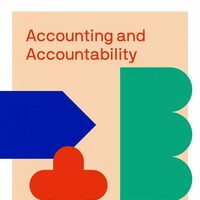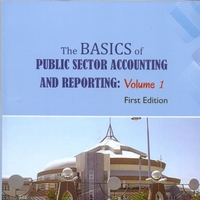Search
Books+
Searching 1,730 books
Search related to the career Credit Analyst
Job Title: Credit Analyst
A credit analyst is a financial professional who assesses the creditworthiness of individuals, businesses, or organizations. They play a crucial role in evaluating the risk associated with extending credit or granting loans. Credit analysts work in various industries, including banking, lending institutions, credit rating agencies, and financial consulting firms.
Responsibilities:
1. Financial Analysis: Credit analysts analyze financial statements, tax returns, and other relevant documents to evaluate the financial health of borrowers. They assess income, expenses, assets, liabilities, and cash flow to determine the borrower's ability to repay debts.
2. Credit Risk Assessment: They assess the credit risk associated with potential borrowers by analyzing their credit history, payment patterns, and credit scores. This involves reviewing credit reports, conducting background checks, and assessing the borrower's reputation in the industry.
3. Industry and Market Research: Credit analysts conduct research on specific industries or markets to understand the potential risks and opportunities associated with lending to businesses operating in those sectors. They analyze market trends, competitive landscape, and regulatory factors to make informed credit decisions.
4. Financial Modeling: Using financial models and statistical techniques, credit analysts forecast the borrower's future financial performance. They assess the impact of various economic factors, market conditions, and industry-specific risks on the borrower's ability to meet financial obligations.
5. Preparing Credit Reports: Credit analysts compile comprehensive credit reports summarizing their findings and recommendations. These reports include an assessment of the borrower's creditworthiness, risk factors, and recommendations for loan terms, interest rates, and collateral requirements.
6. Collaboration: Credit analysts work closely with loan officers, underwriters, and other stakeholders to gather necessary information, discuss credit decisions, and ensure compliance with lending policies and regulations.
7. Monitoring and Review: After credit is extended, credit analysts monitor the borrower's financial performance, payment patterns, and adherence to loan covenants. They periodically review credit facilities and provide updates on the borrower's creditworthiness.
8. Regulatory Compliance: Credit analysts ensure compliance with relevant laws, regulations, and internal policies while assessing creditworthiness and making lending decisions. They stay updated on changes in regulations and industry best practices.
Skills and Qualifications:
- Strong analytical and critical thinking skills
- Proficiency in financial analysis and modeling
- Knowledge of accounting principles and financial statements
- Familiarity with credit risk assessment techniques
- Excellent written and verbal communication skills
- Attention to detail and ability to work under pressure
- Proficiency in using financial software and tools
- Understanding of industry trends and market dynamics
- Knowledge of relevant laws, regulations, and compliance requirements
In summary, credit analysts are responsible for evaluating the creditworthiness of borrowers, assessing credit risks, preparing comprehensive reports, and collaborating with various stakeholders to make informed lending decisions.
Source: Various AI tools
Accounting
Books tagged accounting
Searched in English.



































